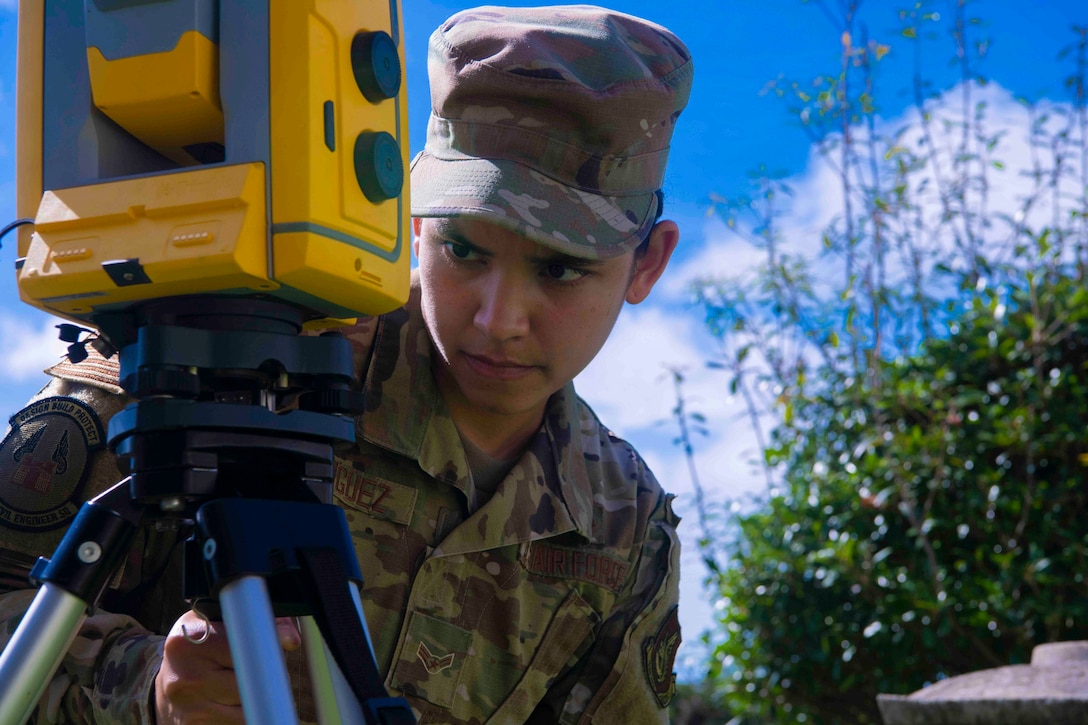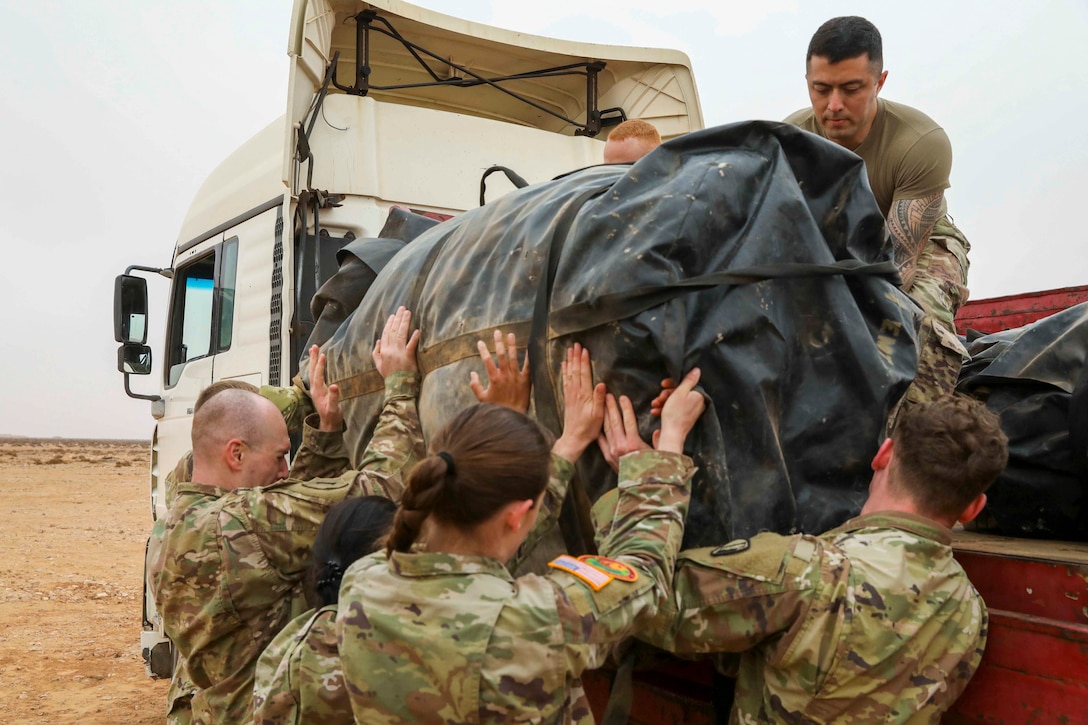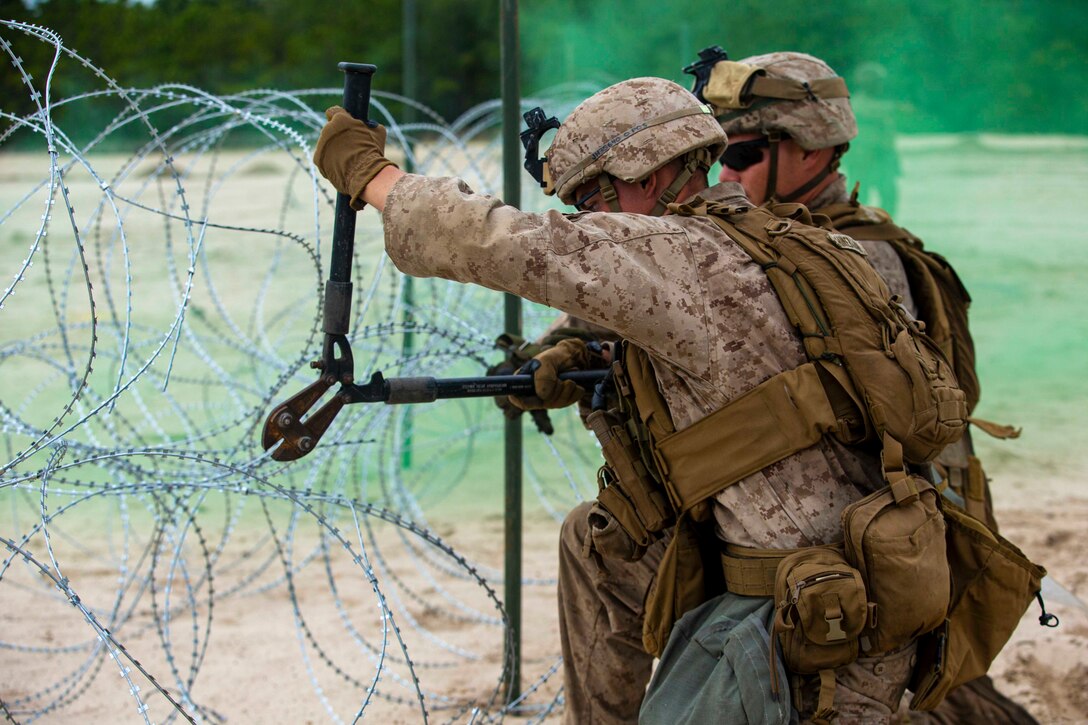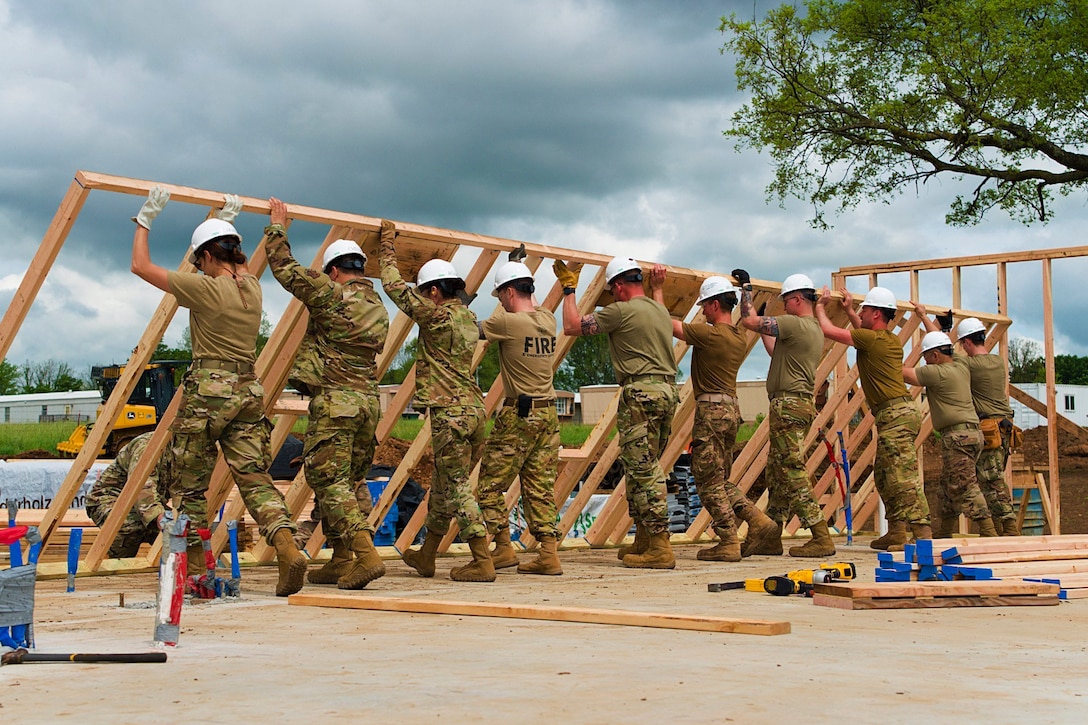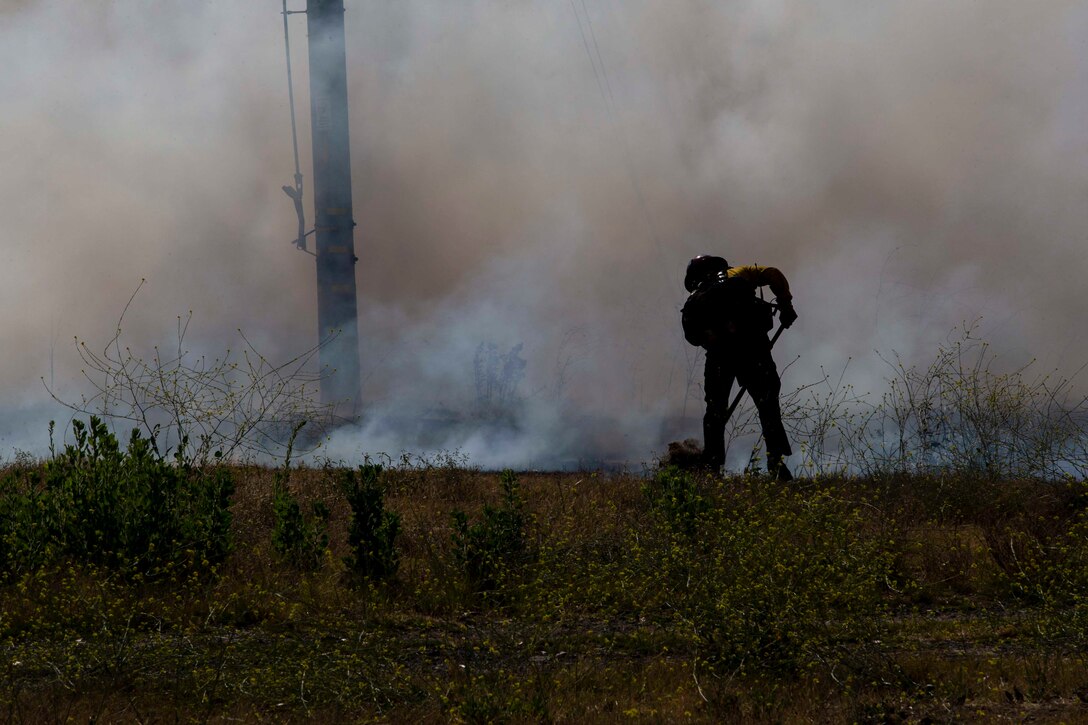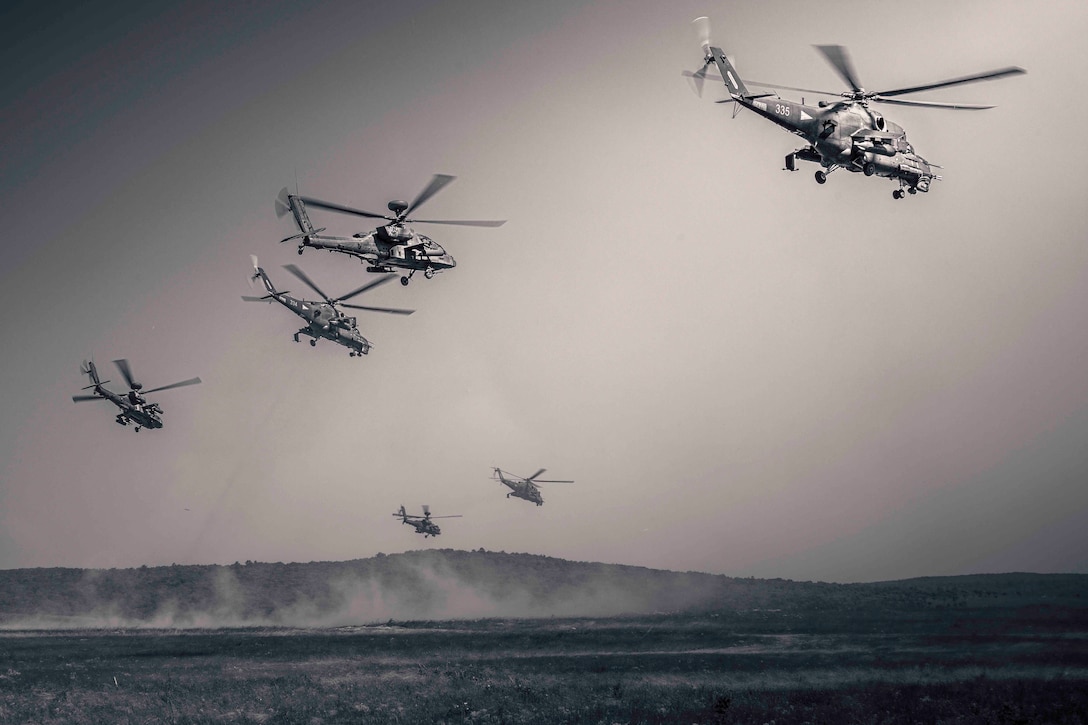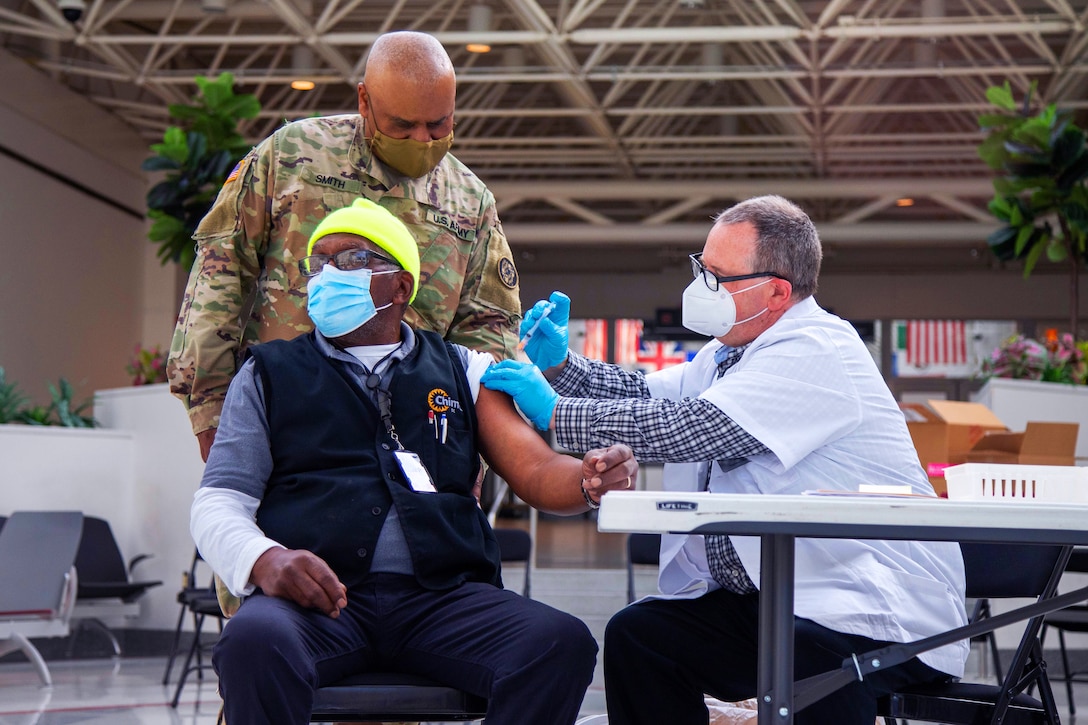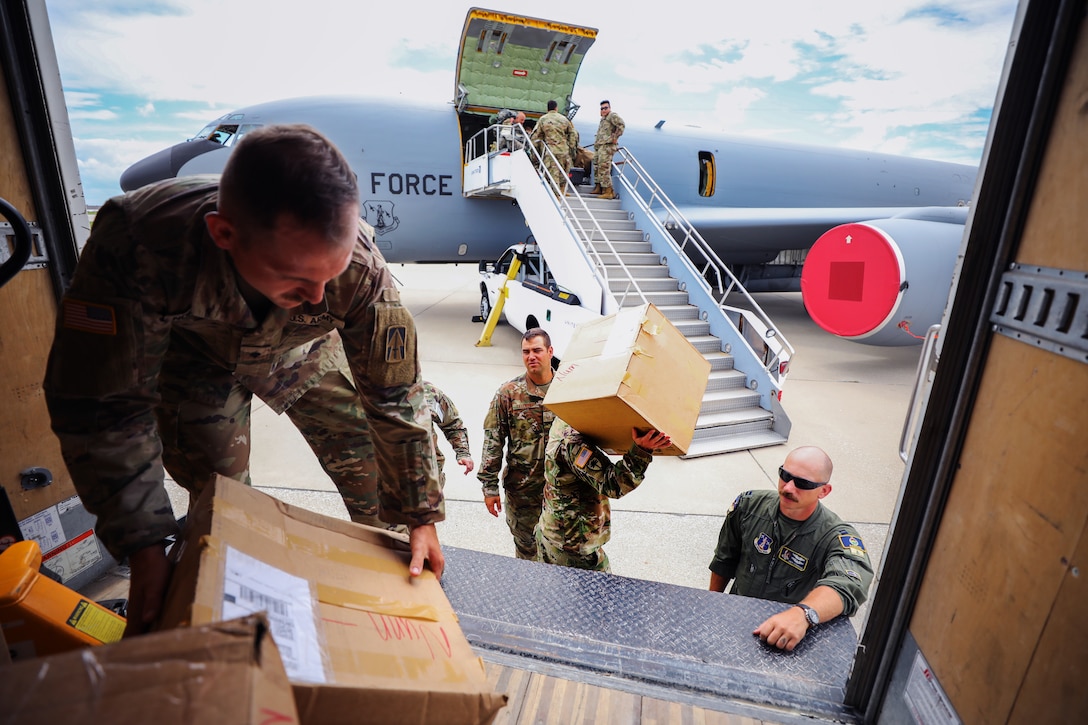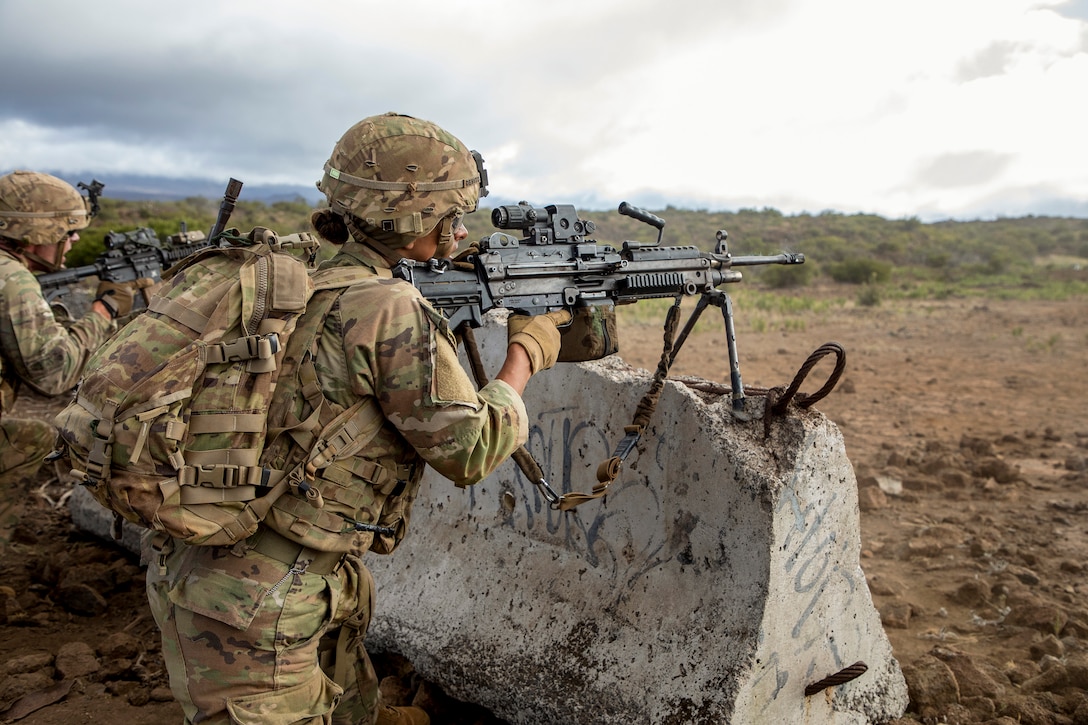Pentagon Press Secretary John F. Kirby
PRESS SECRETARY JOHN F. KIRBY: Hey guys. Sorry I'm
late. I've been saying that more and more these days, I don't know.
Megan you want to remind me of that, don't you? Keep me credible,
accountable, also humble.
OK, some things at the top here. I think you may have seen on Friday,
the Navy's M225 stingray unmanned, there's a picture of it there,
unmanned aerial vehicle, successfully completed the first ever aerial
refueling between an unmanned tanker and an aircraft. The stingray took
off and then transferred several hundred pounds of fuel to a super
hornet.
This historic flight demonstrates the stingray -- that the stingray
can fulfill its primary tanker mission and free strike fighters up for
more of the duty of -- from the duty of transferring fuels, sorry. And
this also extends the range capability of the carrier airwing and the
carrier strike group and it's a great step forward toward
manned/unmanned teaming concepts, pretty dramatic image there. Monday,
military Sealift command fleet replenishment oiler USNS Patuxent,
assigned to the U.S. fifth fleet provided emergency assistance to the
general cargo vessel Falcon Line that was in distress in the Gulf of
Aden.
You can see an image there of some of the crew being rescued. Upon
notification of the situation the Patuxent proceeded at maximum speed to
rescue the crew of Falcon Life before the ship completely sank, it sank
due to engine trouble after taking on water. Patuxent safely recovered
the 15 crew members and provided food, water and medical screening. The
fifth fleet is coordinating with the owner of the ship and other
authorities to determine the most appropriate locations to debark the
crew members.
Over to Europe now, another update on Defender Europe. Today, wrapped
up three days of air and missile defense live fire events in Romania as
part of exercise Saber Guardian, you see an image there from the
exercise. Tomorrow the U.S. Army's 41st Field Artillery Brigade will
move to Norway to conduct a live fire exercise as part of Norwegian
National exercise Thunderbolt. This will mark the end of the fires shock
series of events and will feature multiple launch rocket systems, high
mobility, artillery, rocket systems and high altitude balloon
operations. And will include U.S. Army and Norwegian Army
interoperability exercises.
OK, on to other news, the Secretary is proud to announce today the
establishment of a sixth Defense Department Regional Center. This will
be the Ted Stevens Center for Arctic Security Studies. The Ted Stevens
Center will provide a new venue to collaborate across the U.S.
government and with our allies and partners to advance shared interests
for a peaceful and prosperous Arctic.
The Defense Department Regional Centers are international academic
venues for bilateral and multilateral research, communication and
training with the goal of building strong sustainable international
networks of security leaders.
And I think you also saw today the Secretary issued a directive to
the force that initiates several major department wide efforts to better
address the security challenges posed by China as the United States
number pacing challenge. These initiatives, some of which will remain
classified, are designed to focus departmental processes and procedures
and better help department leaders contribute to whole of government
efforts to address the challenge of China.
Having completed its work now the China task force will stand down
and the Secretary was very grateful in thanking them for their hard work
and their efforts to again better align the department to deal with
this particular challenge.
OK, with that we'll take questions. Sylvie, are you here? Nope, OK. Jen? -- is she on the phone?
Q: Yes, yes.
MR. KIRBY: Sorry, she is. Sylvie, go ahead.
Q: Hello, hello. I am - can you confirm that the administration is trying to close the Guantanamo Detention Center?
MR. KIRBY: The - the President has been clear, Sylvie, that we are
conducting a thorough and deliberate review that's focused on closing
the facility. The President was very clear before taking office that
this was a goal he wanted to achieve. To that end the National Security
Council continues to work closely the Departments of Defense, State and
Justice as well as other departments and agencies. And those discussions
are ongoing.
Jen?
Q: John, can you explain a little more about the directive and what
the Defense Secretary said to the force in light of the task force on
China? What was his conclusion? What was the point of his directive?
Just if you could explain a little more?
MR. KIRBY: The directive's classified so there's not going to be a
lot that I can get into in terms of the specifics. But it - in the
directive to the force he basically is telling the department what the
recommendations of the task force were and endorsing those
recommendations. The best way I can describe it and I kind of touched at
this in the opening is that - is that the task force's work was sort of
a down and in look at the way the department is organized, the way it's
structured and the way we think about the broader issues of China from a
security perspective.
It wasn't mean to be an up and out look, so it's not a strategy that
is produced here. Really it's an assessment of how the department's
doing with respect to truly treating China as the number one pacing
challenge.
And the task force found some gaps and seams, some things that we can
be doing better. And back to your question, the directive issue by the
secretary lays out some initiatives and efforts that were recommended by
the task force that he wants the department to adopt so that we can
improve the way we think, the way we plan, the way we structure and
organize ourselves to truly deal with China as the number one pacing
challenge.
I think what the secretary's concern was that he didn't want to just
say this. He wanted to make sure that we were actually acting on it,
this idea of the pacing challenge.
Q: Is it accurate? It's been characterized that his message was that
while we've been hearing about the China threat for several
administrations, that there was more talk about focusing on the China
threat and fewer actions. Is that a correct characteristic?
MR. KIRBY: I think that's a little unfair, Jen. The task force as
they worked over the last four months found that there was a lot of
goodness in terms of dealing with the challenges posed by China, done by
the Obama administration as well as the Trump administration.
They found things that were worth pursuing and continuing. It was
really a look at how we're doing right now and that there are ways we
can improve. And as we said all along, this institution is all about
self improvement.
And so, it's not at all an indictment. Quite the contrary, of anybody
in the past, I mean, because there were some - there was some good work
done. It's really about stitching it together and making sure that when
we say we considered China the number one pacing challenge that we here
and in the department, you know, can put resources and structure behind
that and make it so.
I would also add just one other point, and that's we very much see
the work of the task force and the work that will go forward as part and
parcel of a much larger whole of government approach to a bilateral
relationship with China.
Again, this was really an inward look at the department. It wasn't an
outward look. It wasn't designed to develop a new policy or a new
strategy specifically.
Q: Anything concrete that you can point to that was recommended?
MR. KIRBY: There were a couple of things that we can talk to. I mean,
one was a tasking to the personnel and readiness department here to
come up with recommendations and plans to better include China as a
focus area inside the workforce and particularly in the world of
training and education and how much are we really looking at making sure
we have a workforce or a part of the workforce that can help us better
focus on China?
So again, I guess the training and education and proficiency and understanding that nation and that part of the world.
A lot of the work of the task force, while I can't get into the
details of it, will help inform both the global posture review, which is
ongoing and will be completed later this summer as well as the initial
work we're doing to start to build out a new national defense strategy.
So they will help - their work will help inform those two additional
bodies of work. And then the other thing was in this directive the
secretary tasked himself. He tasked himself in this directive to
personally take the lead in being more involved in the development of
operational concepts and prototypes, in training and exercises that he
will - that, you know, he will share and that he will be personally
leading and personally involved in that to a degree that we haven't seen
before.
So in addition to tasking the department he tasked himself in this. Did that help? Let's go back to the phones. Tara?
Q: Hello. I'm right on time with the mute button. I have a couple of
follow ups, too. Can you tell us what makes this task force finding
different than the work that has proceeded it? And then secondly on a
different topic, Air Force Acting Secretary, John Roth, yesterday told
Congress that for now the over-the-horizon capability to support
Afghanistan will be basically from the existing footprint that the Air
Force has in the region, and I'm just wondering if that means there
haven't been any inroads made with potentially new locations for a - to
move U.S. forces to provide that over-the-horizon capability? Thanks.
MR. KIRBY: Let me start with the second one first. As we've said for
quite some time we already have an over-the-horizon capability -
counterterrorism capability there and other parts of the worlds, and we
are already using that over-the-horizon capability in Afghanistan.
You all reported on the presence of an aircraft carrier. Well the
aircraft from those carrier air wings have been conducting missions from
the sea and into Afghanistan, and as well we have existing regional
bases and facilities to assist us in that - in that kind of effort, and I
think that's what the acting secretary was speaking to, that we are
already using fixed-wing assets from inside the region and out of
Afghanistan to enact this kind of capability.
It doesn't mean that that's the end all be all, and it doesn't mean
that that's where we're - that we aren't going to try to explore other
options, and we are. And the department is actively supporting
diplomatic efforts to discuss potential options in other places in that
part of the world.
I don't have any specific announcements to make or agreements to
announce today, but I mean, we are actively pursuing additional options,
but again I want to come back to the main point which is that we
already know how to do over-the-horizon, and we already are doing
over-the-horizon kind of - enacting over-the-horizon kind of
capabilities in Afghanistan.
And then your first question, Tara, was on what's new about the task
force as opposed to previous efforts. I'm not aware of previous efforts
similar to what we established here with the China Task Force, so I
can't speak to what previous administrations might have done that are
similar to what Secretary Austin put in place.
This was, as we announced when we -- four months ago was going to be a
sprint. It was a sprint. It was designed not to develop a new policy or
a new strategy but really to take a look at how we're doing inside the
department at really making true our concerns about the pacing challenge
that China poses.
And so, in that regard it is quite unique the work that they produced
and the recommendations that they made, and again I've already talked
to some of them. These are - these are new approaches that we're going
to pursue, and there'll be other new approaches that will come out of
the work that they've done, some of which we'll be able to talk about
and some of which we won't.
Pierre?
Q: I believe you mentioned that you are seeking more access to -- and
we -- should we understand that we are looking at more deployment and
more access to GCC countries around these areas?
MR. KIRBY: I'm not going to get into specific discussions of who our
diplomats are talking to and what that might look like. We already have,
as you well know, a robust footprint in the Middle East that we can
rely upon and draw upon. In fact, we are relying upon and are drawing
upon to help us with this retrograde.
So there are capabilities already existing in the region that are
quite -- quite agile, quite nimble, quite effective. But in terms of
what it's going to look like going forward, again, I'm not going to get
ahead of a diplomatic process.
Q: (INAUDIBLE) does this go hand-in-hand with the content of the
readout of the secretary call -- conference with Mohammed bin Salman
last week in Saudi Arabia. When you said in your readout that we are
going to help Saudi Arabia defend itself, I mean, are we into like...
MR. KIRBY: I would not draw the line between that conversation and
that readout and what -- your first question about, you know, sort of
basing and over-the-horizon capabilities. That the readout we offered
after that call was accurate for the purpose of that call. I wouldn't --
I wouldn't read more into it than that.
Let's see, Tony from Bloomberg.
Q: Hi, John. I have a couple of quick questions on the China
follow-up. Is there -- what systems can you point to in the FY22 budget
request that help further the secretary's directive? Two, are there
areas in the task force that stressed areas where we could cooperate
with China and possibly reduce tensions rather than this continual push
that they are the pacing threat?
MR. KIRBY: Tony, the -- again, I think it's important to remember
what the task force was designed to do. It was to assess how we're doing
in the department in terms of our main obligation, and you've heard the
secretary talk about this, our number one job is to defend the nation.
And you want to make sure that -- that we can do that in all respects.
And that we -- you know, we still consider China to be the number one
pacing challenge of the department.
And, you know, he wanted to see -- have the task force take a look at
structures, organizations, processes, concepts, to make sure that we
are aligned to that -- to that purpose. It's not -- nobody's seeking
conflict here. It's really about alignment and getting a sense -- a
better sense of the gaps and seams and what we can be doing better here
to have the appropriate focus on China.
And, Tony, the work of the task force was not meant to and did not
have a budgetary component here. It wasn't about shaping or recommending
systems or programs to be put into the FY22 budget. So I don't -- I
want -- it's important for me to divorce you from that idea that the
task force was sort of informing the budget in any specific way.
Separate and distinct from that, that said, and putting the task
force aside for a moment, I mean, I think, Tony, if you look at the at
the budget writ large you'll see not only $5.1 billion for the Pacific
Deterrence Initiative, but you will see hypersonics funding in there.
You'll see funding for microelectronics and 5G technology and missile
defense and nuclear modernization.
I mean, there are a host of capabilities and systems that are
represented in the budget that do support our desire to make sure that
we're ready for the continual challenges that -- that the countries like
China pose, not just in the Indo-Pacific region but around the world.
Q: OK. Fair enough. Thanks.
MR. KIRBY: Sure.
Q: Thank you, John. So I have a follow-up on Guantanamo and a
separate question. On Guantanamo is there a timeline or a date that the
administration would like to basically close the Guantanamo facility. I
mean are you looking at a certain date or aspirational even, and can you
do that without cooperation from the Congress?
MR. KIRBY: I'm not aware that there's a target date out there at all,
Fadi. There's -- as I said, an ongoing interagency process right now
and -- and that work continues and when they're -- when that's over and
we can be -- we can read that out, I'm sure -- I'm sure they'll do that
but I'm not aware of any particular date.
And as for Congress, I mean of course there will need to be close
coordination and consultation with members of Congress as we continue to
move forward. What's important here is that the president was serious
when he said he wanted to close the facility. The Department of Defense
supports that goal.
We are part in parcel of this interagency process and we're going to continue to work at that.
Q: And on Saudi Arabia, the official Saudi news agency reported
yesterday that a joint military exercise started between Saudi forces
and American forces in the northwestern part of Saudi Arabia and they
published photos supposedly showing American troops being deployed. What
can you tell us about that military exercise?
MR. KIRBY: I'll have to take your question. I don't have information on that particular exercise.
Q: Because I asked earlier and --
MR. KIRBY: You asked me earlier?
Q: No, no; someone at the DOD official.
MR. KIRBY: OK.
Q: -- and they denied knowing of any such training. And this is
creating some kind of confusion because it's out there with photos.
MR. KIRBY: I'll do what I can to clear up the confusion. Let me just
take the question rather than try to spit ball here. That usually gets
me in trouble.
Ms. (Zheera?).
Q: Thank you.
MR. KIRBY: You're welcome.
Q: I asked, John, about Afghanistan; unfortunately Taliban increased
their attack on everyday Afghan people, dying in Afghanistan. And NATO
director, general director, was here. Did you discuss anything about
Afghanistan?
MR. KIRBY: We certainly did. Secretary General Stoltenberg was here.
We issued a read out of it and in that read out talked about the fact
that Afghanistan was absolutely on the agenda when they met. Secretary
Austin and the Secretary General, and the Secretary reaffirmed our
commitment to doing what we can to help our resolute -- resolute support
partners as they retrograde themselves out of Afghanistan.
And so to the degree we can be supportive and helpful in that the,
secretary made sure that the secretary general knew that. There was also
a reaffirmation by both leaders that as the secretary general very
eloquently put it. We went in together, we changed our operations
together throughout the last 20 years, we adjusted together and we're
going to go out together.
And that still remains the fact, yes. Mike, did you have your hand up?
Q: No.
MR. KIRBY: OK.
Q: Thank you. Two questions. First, I want to (inaudible) about the
China task force. Based on the recommendation, is there anything that
the United States expects the allies in the region to do more in order
to maintain peace and -- peace and stability in the region?
MR. KIRBY: The task force was designed to help us and look at ways we
can better leverage alliances and partnerships and -- and better
contribute. To be better contributors, too, on alliances and
partnerships. It wasn't about tasking them to do anything different.
That -- that wasn't the purpose.
Q: Separate question, the secretary's trip to Singapore was cancelled due to the COVID-19 unfortunately. The secretary --
MR. KIRBY: The entire conference was cancelled.
Q: Yes. And the secretary lost the opportunity to demonstrate the
U.S. commitment to the Southeast Asia. So how will the secretary make up
for it? Is the secretary planning alternative opportunities to engage
with partners in the region?
MR. KIRBY: I mean the secretary was disappointed, I think, clearly
that we couldn't make the trip to Shangri-La work but we understand,
certainly respect the decision by authorities to cancel it, given
concerns over COVID, perfectly valid reason to do so. So we're
disappointed but we will continue to look for other ways to engage our
allies and partners in the region.
And I think you'll see that, I don't have anything specific to
announce today but you'll see it over time and I have no doubt that the
secretary will be willing and able to travel back to the region just as
soon as practical. But I just don't have anything specific to speak to.
Q: OK.
MR. KIRBY: OK. Tom Squiteri?
Q: Hi, John, thanks. My question was about the Arctic Center, you answered that in your opening remarks. Thank you.
MR. KIRBY: All right. Thank you. Paul Shinkman, U.S. News?
Q: John, do you have anything -- I have two questions. First on
Afghanistan, do you have anything on the deadly shooting yesterday of
the 10 mine clearing workers in Baghlan Province, specifically that the
perpetrators belong to ISIS and that the Taliban helped the aid workers
in the aftermath of the attack?
MR. KIRBY: Paul, I don't have anything on that. If you'll allow me
to, I will take the question and we'll get you a response back.
Q: Thank you. And then separately on vaccines. Is -- does the
military now or is it planning to have any role in President Biden's
plan to purchase and distribute internationally the 500 million Pfizer
vaccines?
MR. KIRBY: I don't have any specific plans to speak to today, Paul,
but as you've seen, we have contributed to U.S. government efforts to --
to transport vaccines as well as personnel protective equipment to
nations in the past; India, Bangladesh we just talked about yesterday.
And should there be additional tasking of the Defense Department to
assist in these efforts to help citizens around the world, the secretary
has made it very clear to Department leaders that he wants us to be
able, willing -- able and willing to lead in in that regard. But I just
don't have anything specific to -- to speak to today.
Q: Thanks, John.
MR. KIRBY: Yes, I think it was yesterday, right, when I talked about
Bangladesh. So I mean we are actively participating in those efforts.
OK. This means I got something wrong right. No, actually it doesn't mean
I got something wrong. OK. We'll go to Mallory.
Q: Thanks, John. My questions on the china task force. The Chinese
have been quite open about their strategic priorities in the Western
Pacific and the commandant of the U.S. Marine Corps has of course
released a very detailed and publically available strategy about how he
sees the potential competition with China.
What -- what can you say about the naval component of the China task
force's recommendations and how these direct -- how these directives
could triple down to the services and naval strategy?
MR. KIRBY: Well, Mallory, without getting into specific detail beyond
what we've already done today, as I've said the -- the work of the task
force will inform both global posture review as well as the new
national defense strategy.
And on the former, I mean, that global posture review is really all
about, as the secretary says all the time, matching resources to
strategy and strategy to policy.
And what he is expecting out of the global posture review is a sense
of, you know, the footprint, among many other things, but the footprint.
You know, how many resources do we have, how many ships do we have, how
many people do we have in any one part of the world and is that right,
is it the right number and are they in the right places to do what we
need them to do?
And so, backing that all up, the China Task Force, their work will
help inform that process. Again, without getting into specific -- I
couldn't give you a specific, you know, number today but, clearly, their
work will help inform that.
Q: We're still tracking that for later this year? The posture review?
MR. KIRBY: The global posture review is in progress and we expect it
to be complete somewhere around late summer, maybe early fall.
Q: Thank you.
MR. KIRBY: Yes. Jared, you had a question?
Q: Hi, John, thanks. Just a quick one on Turkey then a brief
follow-up if possible. Turkey's defense minister said Monday that they
would take over security at Kabul Airport if conditions were met and
that they were awaiting a response from their allies on this. Has DOD
communicated with the Turkish Defense Ministry on this since Monday? And
is DOD prepared to fulfill those requirements?
MR. KIRBY: Not familiar -- I'm not familiar with those comments by
Turkey and I don't have the latest lay down in terms of where the
discussions are with the -- the Turks. Let me take the question and
we'll see if we can get you something more detailed.
I would just say broadly we, obviously, have had ongoing discussions
with Turkish leaders about their plans for security at the airport.
Obviously, this is a -- a national decision that -- that President
Erdogan has to make and we respect that.
But we have had some preliminary discussions, obviously, and then
just more broadly as we've said before, I mean, security at the airport
in whatever form or fashion it takes is going to be important for not
only the United States but for other nations to be able to maintain a
diplomatic presence there in Kabul.
But you asked a very specific question for which I did have a
specific answer. I'll do the best I can, I can't promise you a whole lot
of detail right now because I'm just not familiar with the -- with
those comments by the Turks. But I'll -- I'll take a look at it.
Q: I appreciate it. And if I could just follow-up real quick.
MR. KIRBY: I think I got a couple more here. Jeff Schogal?.
Q: Thank you very much.
Defense Secretary Austin recently demoted an Army two-star general to
second lieutenant after this former general officer pleaded guilty in
federal court to sexual assault. I wanted to see, does the Defense
Department have any avenues to also take away all of his retirement
benefits because at the moment he is receiving retirement benefits
commensurate with his lower rank.
MR. KIRBY: Jeff, that was a decision made by the Department of the
Army and I'd refer you to the Department of the Army for -- for your
question. I'm not in a position to answer that. It wouldn't be
appropriate coming from us.
Q: Thank you. What I was told was this a Secretary Austin decision?
MR. KIRBY: I -- I'm going to refer to you to the Department of the
Army. OK, Kris Anderson? OK, I thought she was there. Couldn't get her.
OK, thanks, everybody.
Q: Do you have anything on the active shooter situation in Joint Base San Antonio?
MR. KIRBY: Well, I've seen press reports today just before walking
out here, Fadi. I'd refer you to the Air Force on that. I, I mean, I've
-- I've seen their statements that they had an active shooter situation.
As I understand it there are no reported injuries. But as I walked out
here the base was still on lockdown and I think really much better for
you to go to the Air Force on this as a developing situation. They'll
have more information, and I'm sure they'll be transparent as things
unfold and they're able to say more they will. OK. Thanks, everybody.
